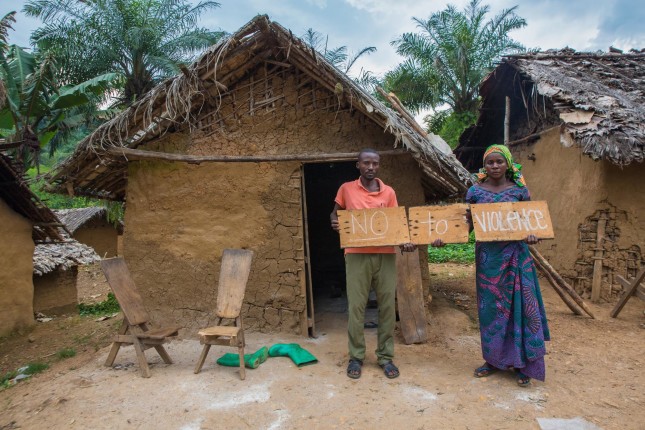-
Gender-Based Violence Continues to Impede Progress Towards Gender Equality
November 30, 2022 By Alyssa Kumler
“COVID-19 and the backlash against women’s sexual and reproductive health and rights are further diminishing the outlook for gender equality,” states a recent report on the current progress toward gender equality across all 17 Sustainable Development Goals (SDGs) from the United Nations Entity for Gender Equality and the Empowerment of Women (UN Women) and the Department of Economic and Social Affairs. Yet the new report also zeroes in on another factor that is diminish progress on gender equality: violence. The authors observe that “violence against women remains high, global health, climate and humanitarian crises have further increased risks of violence, especially for the most vulnerable women and girls, and women feel more unsafe than they did before the pandemic.”
So it is fitting that the 16 Days of Activism against Gender-Based Violence (GBV)—a global campaign to raise awareness about and work to eliminate violence against women and girls—is currently underway. The recent report makes clear the connections between GBV and gender inequality, and also calls attention to what still needs to be done to reach the SDGs by 2030 by looking beyond SDG 5 (Gender Equality) to how this concept is essential across each SDG. The report also clearly demonstrates that the global economy is not on track to achieve gender equality by 2030.
The authors of the report also provide evidence on how common violence against women and girls remains. Currently, one in three women or girls experience gender-based violence during their lifetime. The perpetrators of this violence are often close to these women and girls. In the past year, one in every ten women and girls experienced sexual and/or physical violence from an intimate partner. Further, the report states, “one woman or girl is killed by someone in her own family every 11 minutes.” Even with a global increase of laws which prevent and address GBV, the report estimates that at the current rate, it will be another 21 years until these laws exist globally.
COVID-19, forced displacement, and climate change are drivers of both gender-based violence and the recently slowed progress toward gender equality. Displacement exposes women and girls to higher risks of violence, sexual abuse, and trafficking. Additionally, the authors note that “economic shocks from COVID-19 and extreme climate events, such as floods and droughts, have further undercut food security in the region. Women and girls are most impacted by the reduced access to land, education, and financial resources.
Another study published in June by The Lancet focuses on the connections between GBV experienced by women, girls, and sexual and gender minorities and extreme weather events related to climate change. In this systematic review, the authors complied evidence from more than 41 qualitative and quantitative articles on the subject. They found that “most studies showed an increase in one or several GBV forms during or after extreme events, often related to economic instability, food insecurity, mental stress, disrupted infrastructure, increased exposure to men, tradition, and exacerbated gender inequality.”
These two reports are useful for policy makers seeking to understand the widespread impact of GBV and how it is stalling progress on the SDGs. It is also clear that more funding and investment is required toward tracking these goals. Of the 193 UN member states, “only 47 percent of data required to track progress on SDG 5 are currently available, rendering women and girls effectively invisible,” write the authors of the UN report. “Global cooperation and investments in the gender equality agenda, including through increased national funding, are essential to right the course and place SDG 5 back on track.”
The United Nations report also emphasized the remaining work, observing that “moving forward, progress on SDG 5 will remain out of reach unless long-term structural barriers to gender equality, including discriminatory norms, laws and practices, are addressed and dismantled.”
The authors of the Lancet report also affirmed the connection between GBV, climate change, and gender equality and its significance, and note that “failing to address GBV in the context of extreme events might undermine efforts towards gender equality and sustainable interventions.”
Read more:
- Refugee communities are especially impacted by gender-based violence during COVID-19
- Local, women-led leadership can be effective in reducing gender-based violence when these groups are including in programming
- Changing institutional priorities in humanitarian responses is necessary to reduce gender-based violence
Sources: The Lancet: Planetary Health, United Nations, UN Women, World Health Organization
Photo Credit: A husband and wife in the Democratic Republic of Congo hold signs up in opposition to sexual and gender-based violence, courtesy of Flickr user USAID in Africa.
 A Publication of the Stimson Center.
A Publication of the Stimson Center.



